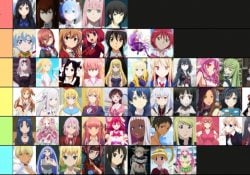In Japanese, the ability to do a certain action is expressed by conjugating the verb. This is to indicate whether something is possible or not to be done. For this we use verbs in the potential form kanou kei [可能系].
As with most verb conjugations in the Japanese language, we convert a verb in dictionary form to potential form by modifying its ending.
See example sentence: I can't eat raw fish.
生の魚が食べられません。 nama no sakana ga taberaremasen
In the sentence we just saw, the verb [食べる] has turned into a negative potential [食べられません]. There are different ways and rules for transforming into the potential form. We will see?
We also recommend reading:
- Learn triple Japanese with compound verbs
- Verbs or Nouns? Transform 100x your Japanese studies
- Irregular and Unusual Verbs – Japanese Verb Exceptions
Índice de Conteúdo
Verbs Ending in “U” [う]
To convert a verb ending in [U/う] into its potential form is simple. Just change the last syllable of the verb for one of the same family that ends with [E] followed by [RU], that is: [える/eru].
Examples:
The table below shows verbs ending in [U] being converted to the potential form. Always the potential form must be translated as: To achieve or To be able to do something (the verb in question).
| Verb | Rōmaji | Meaning | V. Potential | Rōmaji Pt. |
|---|---|---|---|---|
| 読む | Yomu | Read | 読める | Yomeru |
| 話す | Hanasu | Speak | 話せる | Hanaseru |
| 書く | Kaku | Write | 書ける | Kakeru |
| 遊ぶ | Asobu | Play | 遊べる | Asoberu |
| 待つ | Matsu | Wait | 待てる | Materu |
| 飲む | Nomu | Drink | 飲める | Nomeru |
| 取る | Toru | take | 取れる | Toreru |
| 死ぬ | Shinaked | To die | 死ねる | Shineru |
| 買う | Kau | Buy | 買える | Kaeru |
| 焼く | Yaku | Roasting | 焼ける | Yakeru |
| 学ぶ | Manabu | Learn | 学べる | Manaberu |
| 抱く | Daku | Hug | 抱ける | Dakeru |
| 泳ぐ | Oyogu | Swim | 泳げる | Oyogeru |
Such verbs also have their formal version. That instead of adding [RU], you should add {masu}. Here are some examples of the potential form [ます]:
- 読む > 読める > 読めます
- 撮る > 取れる > 取れます
- 抱く > 抱ける > 抱けます

Verbs Ending in “RU” (iru/eru)
For verbs ending in [いる] or [える], the only thing we need to do is replace the ending [る] with the ending [られる].
But be careful, in some informal conversations the ending may be ignored, or they may abbreviate and not say the [RE]. Example: [見る] in the potential form is [見られる], but in some rare conversations one might say [見れる].
In the negative form [られる] is replaced by [られない]. And the polite form exchanges [られる] for [られます].
The next table shows the conversion of verbs ending in [RU] to their potential form.
| Verb | Rōmaji | Meaning | V. Potential | Rōmaji Pt. |
|---|---|---|---|---|
| 食べる | Eat | Eat | 食べられる | taberaru |
| 着る | Kiru | Dress | 着られる | Kirareru |
| 信じる | Shinjiru | Believe | 信じられる | Shinjirareru |
| 寝る | Neru | sleep | 寝られる | Nerareru |
| 起きる | Okiru | Rise | 起きられる | Okirareru |
| 出る | Deru | Let out | 出られる | Derareru |
| 掛ける | Kakeru | Grab | 掛けられる | Kakerareru |
| 調べる | Shiraberu | Examine | 調べられる | Shiraberareru |
| 見る | Miru | look/see | 見られる | Mirareru |
| 開ける | Akeru | Open | 開けられる | Akerareru |
| 落ちる | Ochiru | Fall | 落ちられる | Ochirareru |
| 遅れる | Okureru | Delay | 遅れらせる | Okurerareru |
| 慣れる | Nareru | Get used to | 慣れられる | Narerareru |
Irregular Verbs
There are also irregular verbs that do not follow any specific rules to be transformed into the potential form. The best way to learn is to memorize the table below:
| Verb | Rōmaji | Translation | Potential | Rōmaji |
| する | Suru | do | できる | Dekiru |
| 来る | Kuru | Come over | 来られる | korareru |
| 愛する | Aisuru | Love | 愛できる | Aidekiru |
The article is still halfway through, but we recommend also reading:
Performing the conjugation
In sentences where the potential form is used, the object is more commonly followed by the particle が (ga) than by を (o/wo).
Example: Eating Meat / Getting Meat Eating;
niku wo taberu [肉を食べる] niku ga taberareru [肉が食べられる]
Example 2: Read the book / I can/I can read the book;
hon wo yomu [本を読む] hon wo yomeru [本が読める]
The way to conjugate the verb is quite simple. Just remember the rules and details. You can also use the formal [MASU] way as shown in the examples below:
She can't wake up at six;
彼女は六時に起きられません。 Kanojo wa roku-ji ni oki raremasen
He manages to wake up at six;
彼は六時に起きれます。 Kare wa roku-ji ni oki remasu
We note that the Formal [ます] way of saying the sentence was used first, while in the second sentence we also used the abbreviation leaving aside the syllable [ら].
This was just a brief article on Verbs in their potential form. This doesn't mean that you can freely assemble sentences, there are a lot of related things that we haven't studied yet.
Let's wait for a next article to find other ways to express such sentences, and create some explanatory examples. Feel free to leave tips and suggestions for the next related article, or for us to add or correct something from this article.







